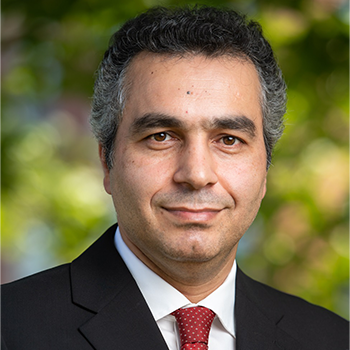Arash Habibi Lashkari, Canada Research Chair in Cybersecurity and associate professor at the School of Information Technology and Faculty of Liberal Arts & Professional Studies (LA&PS), was a key contributor to the recent Council of Canadian Academies (CCA) report Vulnerable Connections by the Expert Panel on Public Safety in the Digital Age.
Sponsored by Public Safety Canada, Vulnerable Connections examines how harmful and criminal activities have evolved as a result of digital technologies, the resulting challenges this causes for policymakers and law enforcement, and possible opportunities in regulation, prevention and investigation of cyber-enabled harm.
The report comes as a response to an increasing potential for harm to come to the Canadian public via cybercrime, which has – as of yet – not been mitigated by conventional crime deterrence methods employed by legislators, law enforcement or even the private sector firms who own and operate many of the largest digital technology firms and services online today.
“The increasing use of the internet and communication technologies has led to a rise in cyber-enabled crime,” Lashkari said. “With online platforms facilitating radicalization and extremist group communication across borders.”
Lashkari was an integral member of the expert panel, and through the volunteering of his time, knowledge and expertise, CCA was able to undertake independent, evidence-based expert assessments to inform public policy development in Canada.
Upon the report’s completion, Jennifer Stoddart, Chair of the expert panel, warned that the proliferation and ubiquity of digital technologies in today’s society make them vital to the accessibility of many essential services. As such, even those not actively engaged in social networks or regularly interfacing with the internet at large find themselves vulnerable to the threat posed by cyber-crimes. As the digital world becomes more difficult to navigate and safeguard, the challenge of protecting internet users and their rights and freedoms becomes considerably more complex.

“To prevent cyber-enabled crimes and harms, it is essential to understand their occurrence and effects on victims and survivors. However, there is a severe lack of data and research on cybersecurity and law enforcement practices in Canada, hindering the ability of law enforcement and governments to identify potential threats to public safety,” said Lashkari.
Creating a safer online environment is a collective responsibility that can also be addressed through community support, educational programs, and corporate social responsibility. This report aims to provide evidence and knowledge on promising and leading practices that could be implemented in Canada to investigate, prevent, and counter threats to public safety while respecting human rights and privacy.
English and French language versions of the report have been published by the CCA. Click here to read the full report.
Originally published in YFile.
